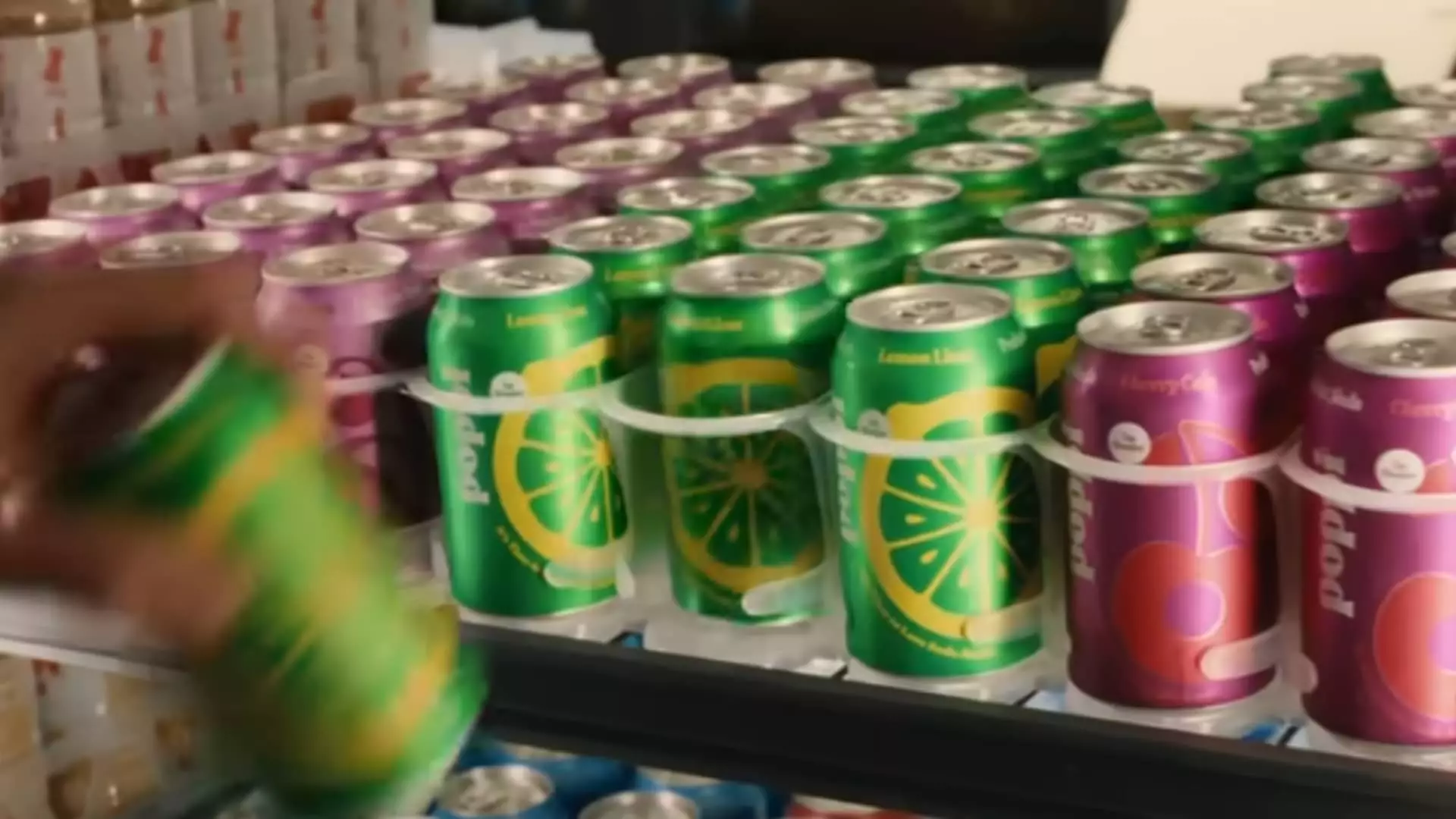In an era where soda consumption is in a steady decline, a bold claim has emerged from the corporate world: PepsiCo is acquiring Poppi, a burgeoning prebiotic soda brand, for a staggering $1.95 billion. Making such a hefty investment in a sector that has seen a significant drop in traditional soda sales raises numerous questions about the motivations that drive this decision and the underlying trends in consumer behavior. Are prebiotic sodas a genuine revolution in the beverage market, or merely a health-driven gimmick poised for eventual downfall?
The Allure of Health-Conscious Branding
For many, the appeal of Poppi stems from its marketed health benefits, boasting apple cider vinegar and prebiotics—ingredients touted as beneficial for gut health. The key here lies in the clever branding that targets a health-conscious demographic increasingly wary of artificial ingredients and high sugar content. With just five grams of sugar, Poppi’s formula falls in line with consumers’ growing desire for less sugary alternatives. Yet, amidst this shiny veneer of health benefits lies a troubling truth: the brand has faced backlash and legal challenges over the claims it makes about its products’ healthiness.
PepsiCo’s decision to acquire Poppi serves as a reminder that the market is evolving, shifting towards products that promise a perceived health advantage. But one has to wonder if this trend is sustainable or if consumers’ interest will wane like a fad diet once it loses its charm.
Competitive Landscape: Dancing with Giants
This acquisition illustrates a crucial point in the interplay between innovative newcomers and established beverage giants like Pepsi and Coca-Cola. While Pepsi appeared ready to launch its own line of functional sodas under the Soulboost label, the cancellation of this initiative indicates a strategic pivot that embraces the trendy allure of Poppi instead. Coca-Cola has already made its move by introducing Simply Pop, highlighting the necessity for big brands to adapt quickly to changing consumer preferences or risk being left behind in the ever-fluctuating market.
However, this race for prebiotic dominance provokes a complex debate. Is it genuinely about fostering innovation, or is it an opportunistic grab for market share during a period of cultural shift towards health and wellness? Both questions spark curiosity: are consumers truly benefiting from this competition, or are they simply being led into a maze of marketing tricks masked as health consciousness?
The Dichotomy of Growth and Scrutiny
The financial performance of Poppi is undeniably impressive, with sales surpassing $100 million before securing ad slots during high-profile events like the Super Bowl. Yet, the legal woes the brand currently faces cast a shadow over its accomplishments. An $8.9 million class-action lawsuit settlement for misleading health claims starkly contradicts the vibrant picture painted by Poppi’s marketing efforts. This raises critical ethical questions about the claims that underpin the brand’s appeal and the consequences that follow suit.
This intersection of profit and potential deception demands vigilant consumer awareness. As PepsiCo steps in to stand behind Poppi, it raises profound implications about corporate responsibility and accountability. Are we, as consumers, entering a new realm of beverage choices, or are we simply on the cusp of another cycle where health fads fade under scrutiny?
In a landscape where habitual soda consumption is plummeting, the arrival of prebiotic sodas is nothing short of a cultural phenomenon. Nonetheless, with significant money on the table, the stakes are high for Pepsi and its consumer base. As we navigate this changing landscape, it’s crucial to remain discerning about what we label as “healthy.” For now, the allure is strong, but genuine healthiness remains a subjective terrain yet to be conquered.

